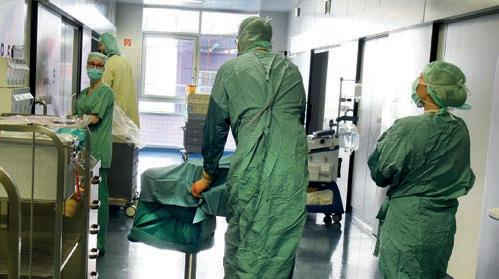
6 minute read
BlogServer
by OECD
100 things we’ve learned from PISA Marilyn Achiron, Editor, OECD Directorate for Education and Skills We’ve compiled a list of 100 things we’ve learned from PISA over the past eight years. Scroll through the full list, test your knowledge on our new PISA quiz, ahead of the 3 December release of brand new PISA results! From OECD Education and Skills Today. More here: https://bit.ly/36ACrEN
Why it’s so hard to compare early childhood education and care across the world Eric Charbonnier, Analyst, OECD Directorate for Education and Skills There is a growing consensus across the world about the importance of quality early childhood education and care (ECEC). Evidence shows that participating in high-quality ECEC can have a positive effect on children’s well-being, learning and development in the first years of their lives. But when we talk about ECEC at the international level, are we really talking about the same thing? The answer isn’t as obvious as it may seem–primarily because ECEC can take very different forms in different countries.
From OECD Education and Skills Today. More here: https://bit.ly/2YGNzx6
Degrees or competencies? A new job language for the new economy Guillermo Elizondo, CEO & Founder, Territorium Life Our economies are facing an immense challenge: high levels of unemployment and a shortage of job seekers with the needed skills. There is also a tremendous gap between the language companies and education providers use to describe skills. The critical question is how can education can really help people get the skills to find a job? Which style of learning can help people to become productive?
From the OECD Forum Network. More here: https://bit.ly/34mQV9T
How education can help bolster civic engagement Marc Fuster Rabella, Analyst, OECD Directorate for Education and Skills Civic education is part of the curriculum in all OECD countries. Civics at school usually focuses on building students’ knowledge on basic rights and duties, key features of political institutions and the voting process. This approach dovetails with the idea of representative democracy, where civic education aims to ensure that future voters are ready to evaluate public officials’ performance and fitness for duty .
From OECD Education and Skills Today. More here: https://bit.ly/2YL6kzt
What regional data tells us about educational attainment and labour-market outcomes Simon Normandeau, Statistician, OECD Directorate for Education and Skills Our analysis finds that most people without upper secondary education struggle to find employment, at both the national and regional level. There are only 10 regions where more than 80% of low-educated younger adults are employed. Tertiary educated y oung adults fare notably better in the job market. Employment rates for 25-34 year-olds with tertiary education are at least 80% in 237 regions, suggesting that attaining higher education is likely to r eap benefits wherever you live.
From OECD Education and Skills Today. More here: https://bit.ly/2PHOM31
It is never too late to invest in teachers’ professionalism Markus Schwabe, Statistician, OECD Directorate for Education and Skills When it comes to the content and pedagogy of the subjects they teach, lower secondary teachers generally feel well prepared, according to results from our latest Teaching and Learning International Survey (TALIS). But less than half feel well prepared in areas of growing importance, such as using technology in teaching, teaching cross-curricular skills, or teaching in multicultural or multilingual environments. This could be attributed to teachers’ education and training in many countries, which traditionally focus on subject-based instruction, rather than new crosscurricular, problem-solving or project-based forms of teaching.
From OECD Education and Skills Today. More here: https://bit.ly/2EezUUt
We need new education spending priorities to build the skills of the future Stefanie Schurer, Associate Professor, School of Economics, University of Sydney The next 50 years will see an unprecedented increase in the degree of automation and worker replacement through the emergence of artificial intelligence. Under the assumption that we keep today’s model of training our workforce, ever larger numbers of individuals will be excluded from the labour market, relying on governmental social protection schemes. We need new sweeping changes to our spending priorities. OECD governments need to radically rethink their model of human capital investment and learn to identify the areas of investment with the highest returns.
From the OECD Forum Network. More here: https://bit.ly/2qMp9ph
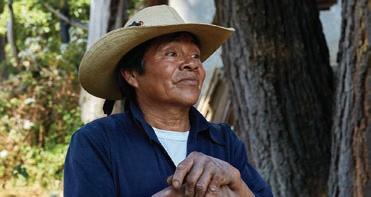

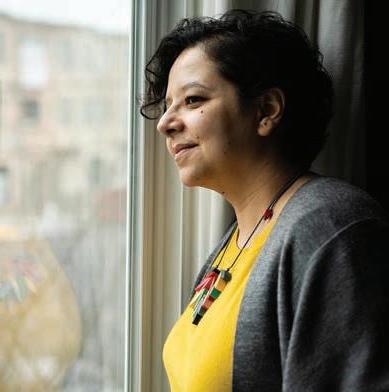
A people powered initiative by the OECD
OUR PRIORITIES
The future of work is now.
Digitalisation has sparked changes which are radically affecting our working lives. We are using new technologies to do our jobs more efficiently, finding work through online platforms, and collaborating in new ways with colleagues across countries. Yet, these benefits are not shared by everybody. Many are experiencing the negative effects of growing inequality in wages, opportunities and risks – worrying trends for the future if left unresolved.
Through the “I am the Future of Work campaign”, the OECD is seeking to contribute to a positive future of work. We are gathering people’s perspectives and ideas about work and fostering solutions-oriented conversations across sectors and countries. Together, we can build a better world of work for all.
DIGITALISATION
How can technology shape the future of work in a positive way?
SKILLS & LEARNING
How do we keep skills and learning relevant in the changing world of work?
SOCIAL PROTECTION
How can we improve social protection so that everyone benefits?
JOB QUALITY
How can we make sure job quality is a top priority?
We want a future that works for all futureofwork.oecd.org
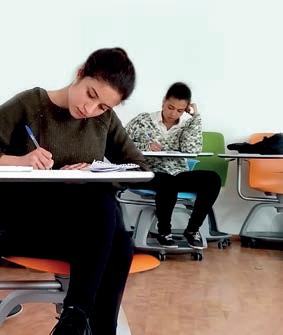
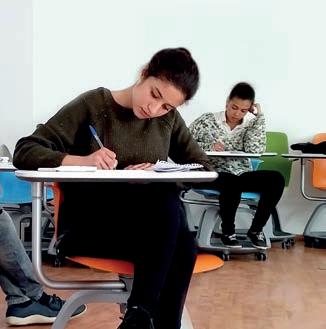
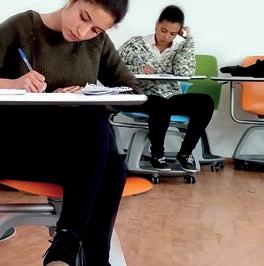
UNIVERSITÉ PRIVÉE DE MARRAKECH
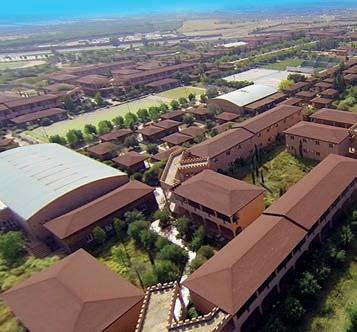
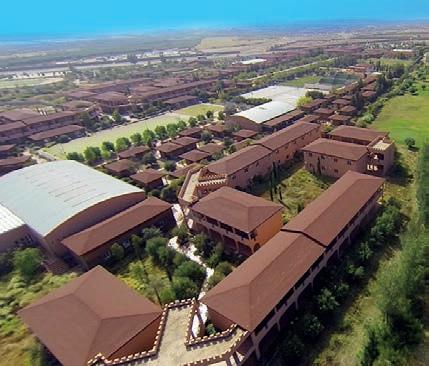
U N I V E R S I T É R E C O N N U E PA R L’ É TAT جامعة معرتف بها من طرف الدولة
9 FIELDS OF EXPERTISE
ENGINEERING
TOURISM & HOSPITALITY
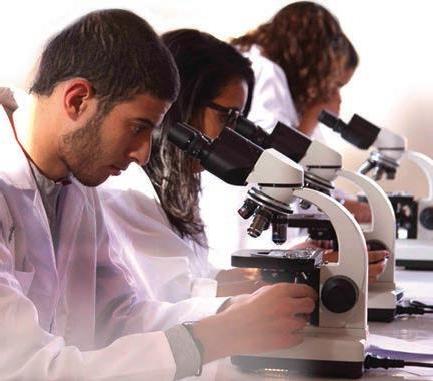



SPORTS MANAGEMENT
HEALTH SCIENCES
BUSINESS
EXECUTIVE PROGRAMS MEDICINE
DIGITAL, MEDIA, ARTS & CULTURE
RESEARCH
+60 BACHELOR, MASTER, ENGINEER & DOCTORATE PROGRAMS
Renowned academic partners Double diplomas & international exchange programs Onsite student accommodation









Training programs thought and designed to enhance employability
www.upm.ac.ma
UNIVERSITÉ PRIVÉE DE MARRAKECH Km 13, Route d’Amizmiz 42312 - Marrakech - Morocco - Phone. +212 5 24 48 70 00 / 04 - Email. contact@upm.ac.ma






